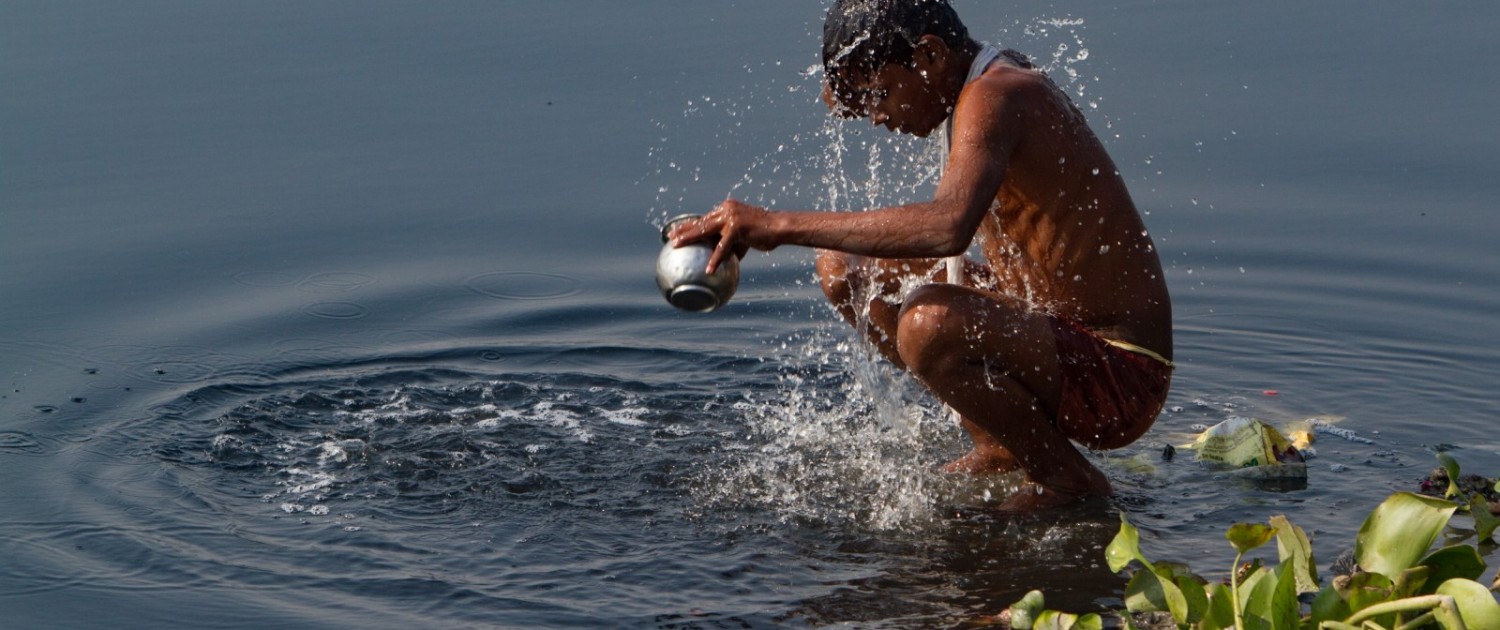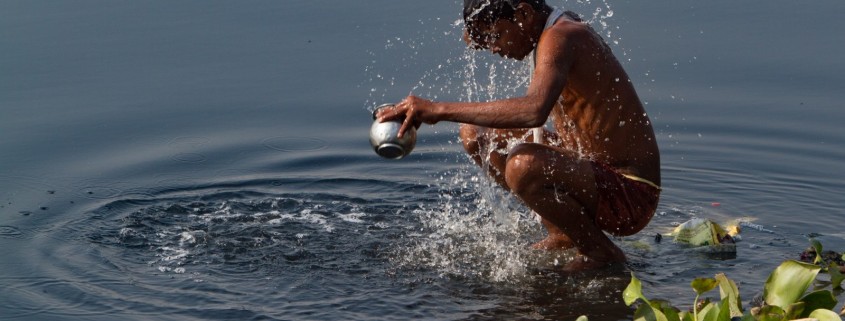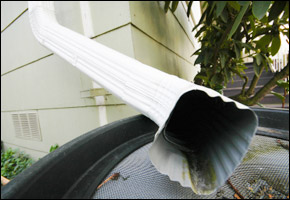Urgent Tone at World Water Day Summit
Water supply a national security issue.

India’s polluted water and its diminishing groundwater reserves were cited as two potential sources of instability in a speech by Gen. James Jones at a World Water Day summit in Washington, D.C., on March 22, 2016. Photo © J. Carl Ganter
By Brett Walton, Circle of Blue
Gen. James Jones came of age in the U.S. military in a different era. As a second lieutenant in the Marine Corps, his first overseas assignment was in Vietnam, when Cold War politics divided the world in two.
That bilateral balance, broken apart 25 years ago, has been toppled. Like many thinkers today, Jones says that security in the 21st century is a broader, more precarious concept — and that water is a core element.
The growing imbalance in global water supply and demand is evolving into the most toxic threat to world peace and international and U.S. national security.
— Gen. James Jones
“The premiere strategic threat to global security, and our own, is not a particular country, ideology, or weapon,” Jones said on March 22 at a World Water Day summit in Washington, D.C., the same day that dozens of people were killed in Brussels by Islamic State suicide bombers. “It is human wants and needs – for the unsatisfied necessities for life-basics, including food, energy, water, and even dignity.” The former national security adviser to President Obama went on to say that, “The growing imbalance in global water supply and demand is evolving into the most toxic threat to world peace and international and U.S. national security.”
Three decades ago those words might have been spoken by an aid worker or a left-of-center politician, not a four-star general. To support his thesis, Jones cited political, economic, and social flashpoints across continents: groundwater crises in Yemen and India, population growth straining water supplies in Africa, drought leading Syria into a “race to the abyss”, Jordan struggling to provide drinking water and sewer service to millions of Syrian refugees. Times indeed have changed.
The complexity of the world’s water challenges was a theme of the day-long summit, which was attended by more than 200 people, including senior U.S. State Department officials, government ministers, business leaders, utility managers, and academics.
“Government cannot do it alone,” said Jennifer Haverkamp, senior adviser for water resources at the U.S. State Department. John Holdren, the president’s science adviser, offered the same conclusion. “This is not solvable by any one sector, organization, or approach,” he said.
The breadth of the problem can be maddening, they acknowledged, but an inclusive discussion — not only of energy, food, and health but with civil society groups, businesses, and politicians at the table — is the best approach.
High-profile groups are calling for a high-level reckoning. The Atlantic Council and the U.S. Water Partnership, two of the event hosts, called for U.S. officials to develop a global water strategy, which is essential for a peaceful world, they argue.
Jones echoed the need for a water strategy, saying that national security is a “far deeper and broader concept than it was during the last half of the 20th century.”
“It’s time to acknowledge,” Jones said, “that global stability is no longer defined solely by the ability of nations to deploy and defeat, but rather by our capacity to engage and endow — to meet human needs, sustain economic growth, and turn promise and opportunity into jobs and a higher quality of life.”
The summit took place with an eye to the political calendar. A new president will be elected in November and a staff turnover should be expected in the next administration. The Atlantic Council and the U.S. Water Partnership want to release a draft strategy by the fall of 2016. That would allow the ideas discussed this week to establish a beachhead before new leadership enters the capital.
Brett writes about agriculture, energy, infrastructure, and the politics and economics of water in the United States. He also writes the Federal Water Tap, Circle of Blue’s weekly digest of U.S. government water news. He is the winner of two Society of Environmental Journalists reporting awards, one of the top honors in American environmental journalism: first place for explanatory reporting for a series on septic system pollution in the United States(2016) and third place for beat reporting in a small market (2014). He received the Sierra Club’s Distinguished Service Award in 2018. Brett lives in Seattle, where he hikes the mountains and bakes pies. Contact Brett Walton






Leave a Reply
Want to join the discussion?Feel free to contribute!